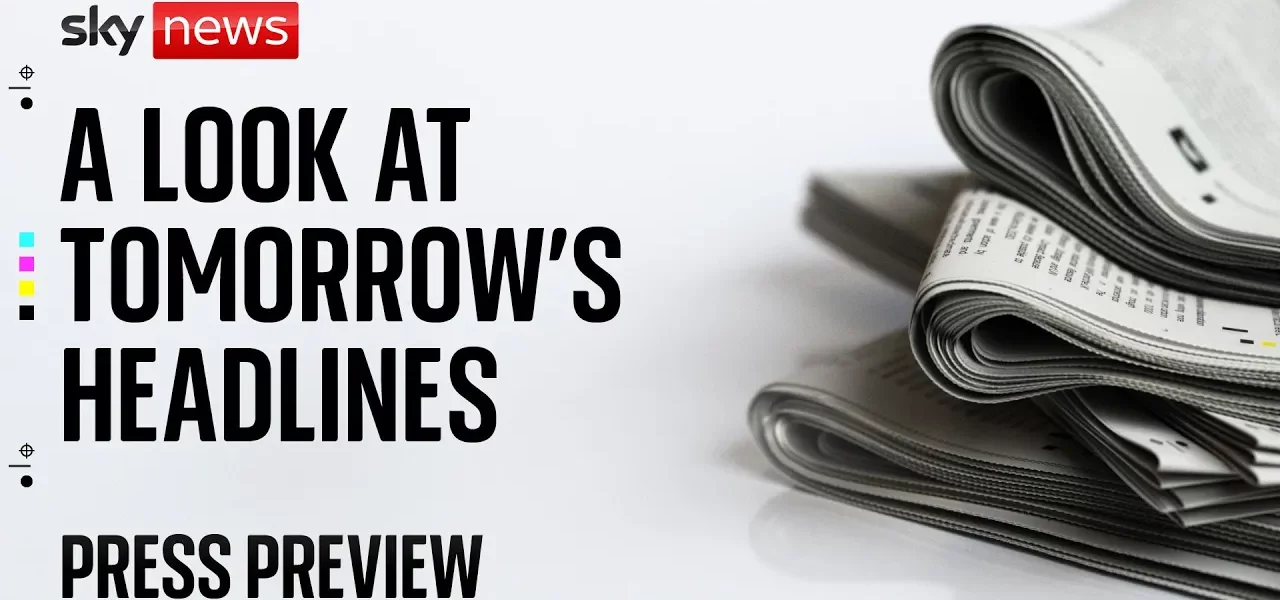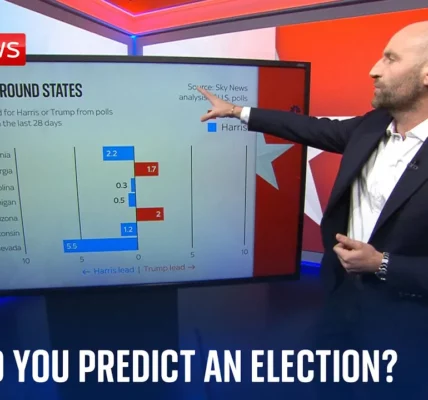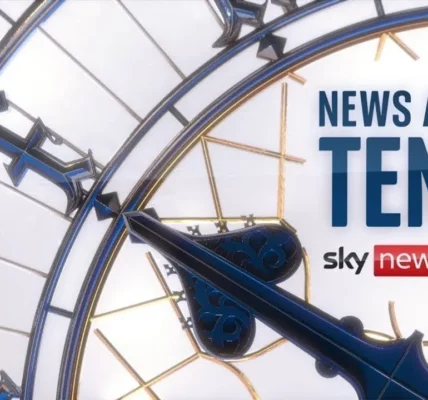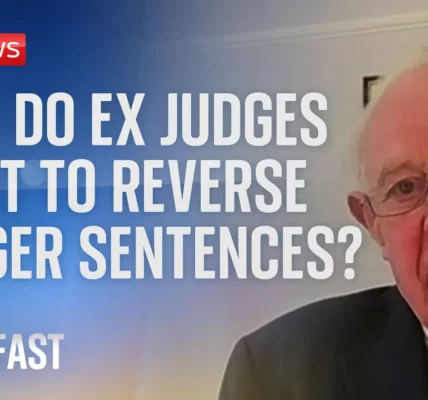Press Preview: Political Landscape in the UK

This article provides an in-depth overview of the current political situation in the UK, analyzing key issues such as inflation rates, public opinion polls, and their implications for major political parties. With insights from political analysts, this piece aims to explore the potential outcomes of upcoming elections and the broader implications for the nation’s governance.
Introduction
The political landscape in the UK is undergoing significant changes, marked by fluctuating public opinions and economic indicators. Recent developments have prompted discussions about the future of the Conservative Party, led by Rishi Sunak, amid predictions of a potential electoral wipeout. This article delves into the implications of recent polling data, inflation trends, and the responses from both the Conservative and Labour parties, as well as the broader effects on UK governance.
Current Political Climate
The current political climate is characterized by a stark shift in voter sentiment, particularly towards the Conservative Party. Recent polls suggest that the party, once dominant, is now facing the possibility of its worst electoral performance in history. This section explores the factors contributing to this decline in popularity.
Poll Predictions
According to a recent YouGov poll, the Conservative Party could be left with as few as 53 seats in the House of Commons. This projection indicates a dramatic fall from the 80-seat majority secured by Boris Johnson in 2019. The implications of this poll suggest a seismic shift in UK politics:
- Potential loss of official opposition status to the Liberal Democrats.
- A fragmented political landscape on the right, with Reform UK siphoning votes from traditional Conservative supporters.
- A significant majority for Labour, projected to gain 516 seats and a majority of 382.
Historical Context
This situation bears resemblance to past political upheavals in the UK, notably the Conservative Party’s near-collapse in Canada during the 1993 elections. Such historical precedents highlight the potential for significant realignment in voter bases and party structures:
- 1993 Canadian Election: Conservatives reduced to 2 seats.
- Implications for party strategy and leadership.
Economic Indicators: Inflation Trends
In a contrasting development, inflation rates have fallen to 2%, meeting the Bank of England’s target for the first time in three years. This section examines how this economic news interacts with political fortunes:
Impact on Public Sentiment
While falling inflation is generally considered good news for the economy, the timing relative to the elections raises questions about its political impact:
- Rishi Sunak’s claim to credit despite external factors influencing inflation rates.
- The potential for increased public disillusionment despite favorable economic data.
Long-term Economic Implications
Though inflation rates may improve economic conditions, the Conservative Party’s long-standing issues—including recent scandals and governance challenges—could overshadow these positives:
- Potential stagnation in economic recovery due to political instability.
- Long-term voter disenchantment with traditional parties.
Labour Party’s Position and Strategies
The Labour Party, under the leadership of Keir Starmer, is poised to capitalize on the Conservatives’ decline. This section evaluates Labour’s strategies and public commitments:
Addressing the Gender Pay Gap
Rachel Reeves, the Shadow Chancellor, has pledged to close the gender pay gap, which remains a pivotal issue in UK politics:
- The complexities surrounding the measurement of the gender pay gap.
- Challenges faced in achieving equal pay for equal work across different sectors.
Public Engagement and Voter Turnout
With the elections approaching, Labour’s focus on voter engagement and addressing public concerns will be crucial:
- Strategies to mobilize undecided voters.
- Engagement with traditionally underrepresented communities.
Conclusion
The evolving political landscape in the UK signifies a critical juncture for both the Conservative and Labour parties. With polls indicating a potential wipeout for the Conservatives and a strong showing for Labour, the future of UK governance hangs in the balance. As we approach the elections, the interplay of economic indicators, voter sentiment, and party strategies will be pivotal in shaping the forthcoming political era. For further insights and updates, be sure to follow our ongoing coverage of UK politics.
“`




